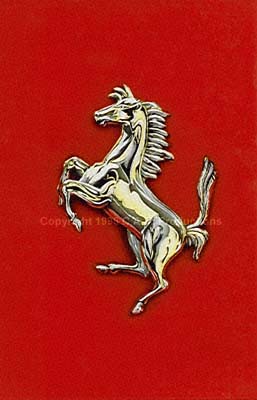Great Moments From Cinema - 24
The Day The Talkies Came To Town
Movie: The Jazz Singer (Warner Bros.; 1927)
Director: Alan Crosland
Screenplay: Samson Raphaelson (play), Alfred A. Cohn and Jack Jarmuth
Major Cast: Al Jolson, May McAvoy, Warner Oland and Eugenie Besserer
Film Synopsis: Jolson is the son of a strict Jewish ‘Cantor’ (Oland) who runs away from home and becomes a jazz singer
My Favorite Moment: Jolson learning about his big break in a ‘Broadway’ musical
Why I Like It: “Wait a minute, wait a minute, you ain't heard nothin' yet! Wait a minute, I tell ya! You ain't heard nothin'!” These words by Jolson are supposed to be the first spoken dialogue in cinema. People had already started singing, but nobody had attempted to make a ‘talkie’ before. In that respect, we can safely call it one of the iconic moments in history of entertainment. But the legacy of this film should not be limited to this achievement alone. It is a great movie with an endearing story that everyone can identify with.
Jolson’s character likes to sing jazz songs right from childhood. This deeply upsets his father who comes from a lineage of ‘Cantors’ and wants his son to follow in his footsteps. One day he finds out that his son is singing in a club and mercilessly beats him to teach a lesson. The young kid bids farewell to his mother (Besserer) and runs away from home. It tears her apart but she is helpless in front of her strict husband. Years pass and Jolson becomes a competent jazz singer who impresses everyone in small clubs on the west coast. Till then the movie uses title cards for dialogues but Jolson’s entry is punctuated by the above sentence. Later, the film reverts back to titles with intermittent spoken words. However, history had already been made. McAvoy sees him and gets him a part on a traveling entertainment show where Jolson continues to shine, till one fine day when he is told of his big opportunity on ‘Broadway’.
The scene takes place on a railway platform where Jolson is overjoyed to learn about this. Title cards are used to illustrates his screams of ‘Broadway’, ‘New York’, ‘Home’, ‘Mother’. What makes this special is the gradual increase in the font size from ‘Broadway’ to the huge sign of ‘Mother’. Jolson has not forgotten his family and the execution of the scene is fantastic. Ironically, spoken words could not have communicated his sentiments better than these title cards.
Later on in the movie, his strict father still refuses to acknowledge him as he visits his home. On the day of Jewish festival, his father is gravely ill and cannot sing. Jolson’s mother comes to him and begs him to take his fathers place. However, the same night is the opening of Jolson’s ‘Broadway’ musical and now he has to choose between his mother and his career. His scenes of anguish at this difficult decision are very well done and one can feel his pain as in either case his heart would be broken. Not surprisingly, he chooses his family and sings the holy songs with such passion that even the strict ‘Broadway’ manager, who had threatened him earlier, is moved to tears. It is the most heart warming ending to a movie and Jolson’s performance is great. Irrespective of all of this, we should owe a huge gratitude to this movie for here is where it all began and eventually gave rise to writers like Billy Wilder and Quentin Tarantino.


0 Comments:
Post a Comment
<< Home